What comes to your mind when you think about ‘creativity’? Eureka moments? Remember, creativity is not all about eureka moments or flashes of insights – creativity or creative thinking is a process, a cognitive process, not an event. It’s a process that helps us produce new ideas or transforms old ideas into better and updated ideas. The steps involved in the creative thinking process however are different for everyone – they vary from person to person. But from where to start when you feel stuck and have no clue how to move forward and advance your ideation journey? There is a model ‘Creative Problem-Solving’ by Graham Wallac (a sociologist and founder of the London School of Economics), that is thought to be the first ever comprehensive model of the creativity process. Graham Wallas presented this model in his book ‘The art of thought’ published in 1926. This model may help you take the first step towards your idea generation journey and advance it if you feel stuck along the way. The following are the 4 stages of Wallas’s creativity process:
The first stage of the creativity process is ‘preparation’:
It’s all about absorbing a lot of information and experiences in that particular domain you are working on. For instance, if it is related to writing, you must explore the knowledge and work of other writers. If you are a scientist and looking for a solution to a problem or a breakthrough idea, then you must pay attention to the background research. Similarly, if you are an artist, you must focus on other pieces of art by other artists and so on…. This process not only provides you with tons of knowledge and exp erience, but also proves to be a great source of inspiration. At this stage, you must engage yourself in activities that help you enhance your knowledge and help you capture more and more experiences. So, cultivating an environment where ideas can grow plays a vital role at this stage. For instance, many successful innovators working in Silicon Valley come from different backgrounds, but we see everyone there works to scale his or her innovation journey and new startups emerge every day. So, what drives these innovations? What makes these innovative minds suddenly more innovative? The answer is their environment, an innovative culture and environment is really, really important for bringing innovation, a culture or an environment that provides the experiences or that simply promotes the notion of capturing thoughts and experiences. Once these experiences are captured, they enhance or develop the skills of an ideator.
erience, but also proves to be a great source of inspiration. At this stage, you must engage yourself in activities that help you enhance your knowledge and help you capture more and more experiences. So, cultivating an environment where ideas can grow plays a vital role at this stage. For instance, many successful innovators working in Silicon Valley come from different backgrounds, but we see everyone there works to scale his or her innovation journey and new startups emerge every day. So, what drives these innovations? What makes these innovative minds suddenly more innovative? The answer is their environment, an innovative culture and environment is really, really important for bringing innovation, a culture or an environment that provides the experiences or that simply promotes the notion of capturing thoughts and experiences. Once these experiences are captured, they enhance or develop the skills of an ideator.
So the preparation stage of the creativity process must be carried out in a quiet environment, because this is the stage when you absorb a lot of information that goes to your subconscious mind that’s very helpful at the second stage of the Wallas’s creativity process.
The second stage of the Wallas’s creativity process is ‘incubation’:
This is the stage when you don’t think of the problem at hand consciously, rather you do it subconsciously. When you leave a problem at hand for a few minutes, hours, days, even weeks or longer, you may come up with a better solution when you return to it and start thinking about it again. Research supports the idea that creative performance benefits from unconscious processes. Research in the field of creativity or more specifically the idea generation process has revealed that the unconscious mind has a significant role in idea generation and idea selection.
subconsciously. When you leave a problem at hand for a few minutes, hours, days, even weeks or longer, you may come up with a better solution when you return to it and start thinking about it again. Research supports the idea that creative performance benefits from unconscious processes. Research in the field of creativity or more specifically the idea generation process has revealed that the unconscious mind has a significant role in idea generation and idea selection.
In a research project, a team of researchers had been working in order to find evidence of the power of incubation to enhance creativity. The researchers experimented on three groups of undergraduate students. Each group was assigned to complete a creativity test. The participants were asked to imagine the possible uses of a paper. During the experiment, the first group was asked to work on the task for 4 minutes consistently. The second group was interrupted after two minutes and assigned to search synonyms for the given words, and then they were given 2 more minutes to complete the original tak. Asked to generate synonyms for each word from a given list (considered to be another task that exercised creativity), then given two more minutes to complete the original test. The final group was also interrupted after two minutes, were engaged in an unrelated task, and given two more minutes to complete the original work afterwards. The time given to each group for completing the given task was equal, but resulted in different outcomes. The research team compared the creativity that resulted from continuous work, from work with incubation period and a related task, and from work with incubation period and unrelated task. The findings were: the group who took a break but worked on unrelated tasks was able to generate the most ideas; the group who took a break with related tasks was at number second in total number of ideas generated and the group who generated the least ideas was the one who worked on the given task continuously without a break.
So, the research team was convinced of the idea that incubation periods significantly enhance a person’s creativity. One possible explanation for these results is that when presented with complicated problems, the mind often gets stuck, traces back through certain pathways of repetitive thinking. Because when we work on a problem without any break, we cannot come out of thinking about known solutions. We just keep thinking of the same solutions instead of finding other new possibilities. When we take a break from the problem and divert our focus towards something else, we make new pathways apart from those old pathways that had been offering the same solutions. After it, when we think about the original problem, our mind is more open to new possibilities.
We may engage in anything that diverts our mind away from the problem at hand and gives our mind a break, this boosts our odds of having better solutions. You may leave something undone occasionally, and when you will come back to it, you might just find better ideas to do the same things. This is how the incubation stage plays a great role to enhance our creativity.
 Flashes of Insights The third stage is about flashes of insights or Aha moments that are the signs of creativity for most of us. The Aha moments do come, but not suddenly but at a particular stage of the creativity process. Typically, they follow the preparation and incubation stage i.e. after taking and processing information consciously and subconsciously, the breakthrough ideas emerge and come to the forefront of your mind. This is when you are able to make new connections, break old thinking patterns and join the dots in different and completely unique ways.
Flashes of Insights The third stage is about flashes of insights or Aha moments that are the signs of creativity for most of us. The Aha moments do come, but not suddenly but at a particular stage of the creativity process. Typically, they follow the preparation and incubation stage i.e. after taking and processing information consciously and subconsciously, the breakthrough ideas emerge and come to the forefront of your mind. This is when you are able to make new connections, break old thinking patterns and join the dots in different and completely unique ways.
The fourth stage of the creative process is the ‘evaluation stage’:
It’s about judging and validating your idea. So, the ideators ask themselves questions like ‘what-if’, ‘how come’, ‘I wonder’, ‘how can I’ etc. You may share your idea with your friends, your peers and group of creative people around you so that your thoughts about an idea get multiplied, and you get a better version of your current idea. Also, at this stage, you can choose which idea to pursue further on the basis of its viability.
‘what-if’, ‘how come’, ‘I wonder’, ‘how can I’ etc. You may share your idea with your friends, your peers and group of creative people around you so that your thoughts about an idea get multiplied, and you get a better version of your current idea. Also, at this stage, you can choose which idea to pursue further on the basis of its viability.
This is the stage of critical evaluation, self-criticism, and self-reflection. Sometimes self-criticism is so powerful that you underestimate the power of your idea. So, it’s important to get opinions from others at this stage.
These are Wallas’s four steps of creativity process that may help ideators generate and flourish their ideas. A fifth step has also been introduced now that is elaboration. This is when you start actual work and implement your idea.
Although the process of creativity cannot be the same for everyone, understanding and implementing these steps may enhance your creative thinking skills. Because when you acknowledge the role of both conscious and unconscious thought processes towards creativity, you would have a clear idea of where to start and how to keep going along the way in case you get stuck.
If you want to advance your Ideation or innovation journey, join the TDN platform today.
Sign up now to come up with a next big idea!
Already have a breakthrough idea? Bring it to life Now! Schedule a free consultation.
Follow us:
Facebook : Think Different Nation
Instagram : Think Different Nation
Twitter : @TDN_Podcast
